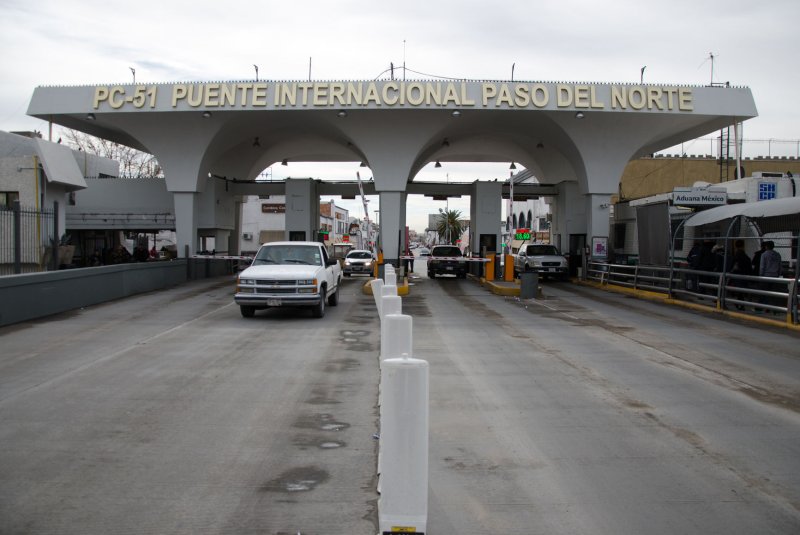A car passes the border crossing between Juarez, Mexico, and El Paso, Texas, on the Paso del Norte bridge on January 10, 2019. File Photo by Natalie Krebs/UPI |
License Photo
Feb. 25 (UPI) -- The U.S. Supreme Court ruled 5-4 Tuesday that a Mexican family cannot sue a U.S. Border Patrol agent for a cross-border shooting 10 years ago that killed their teenage son.
The court upheld a lower court decision to dismiss the case filed by the parents of Sergio Adrian Hernandez Guereca, who was 15 when he was shot dead in 2010 by Border Patrol agent Jesus Mesa.
The parents argued that Mesa shot and killed the boy while running back and forth across the U.S.-Mexico in El Paso, Texas, and Ciudad Juarez. They said Mesa violated a constitutional ban against unjustified deadly force and the Fifth Amendment right to due process.
Mesa had stood on the U.S. side of the border and Guereca on the Mexico side when the shooting occurred.
Justice Samuel Alito argued that it was Congress' responsibility to determine whether Mesa's action should be outlawed, and said the case has national security implications the high court cannot address.
"The court reasoned that such an incident presents a 'new context' and that multiple factors -- including the incident's relationship to foreign affairs and national security, the extraterritorial aspect of the case, and Congress' 'repeated refusals' to create a damages remedy for injuries incurred on foreign soil," Alito wrote in the majority opinion.
Ruth Bader Ginsburg argued in dissent the high court can take action because Mesa opened fire on the U.S. side of the border.
"Neither U.S. foreign policy nor national security is in fact endangered by the litigation," she wrote. "Moreover, concerns attending the application of our law to conduct occurring abroad are not involved, for plaintiffs seek the application of U.S. law to conduct occurring inside our borders."















